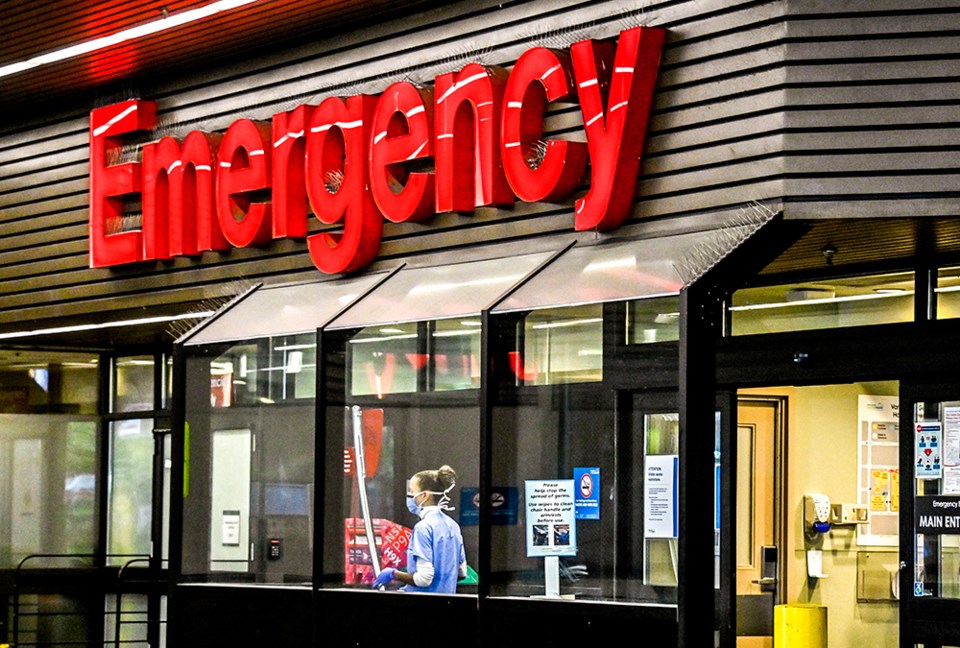Experts warned today that British Columbia is putting people at risk by lifting protective measures as the BA2 subvariant brings a second, unpredictable Omicron wave in the province.
The Omicron subvariant is 20 to 30 per cent more transmissible than the original Omicron, and now comprises at least 75 per cent of cases in B.C.
“We’ve got an Omicron rerun, minus protections,” said Dr. Brenda Hardie, a physician with public health advocacy group Protect Our Province BC.
“And we saw the highest number of deaths and hospitalizations we’ve ever seen in Omicron one,” she said.
“The sixth wave is here.”
On Tuesday, provincial health officer Dr. Bonnie Henry confirmed the vaccine requirement for restaurants and events and almost all other major COVID-19 precautions would end this Friday as planned. Vaccines will still be required for visitors to long-term care.
Henry cited high vaccine protection and a levelling off of reported cases and deaths as a reason to ease measures.
But hospitalizations have begun to creep up again, and immunity among the elderly, vulnerable and for health-care workers who received their booster shots more than four months ago is also waning.
Retired emergency physician and Protect Our Province member Dr. Lyne Filiatrault said “we’re not sitting in a good place.”
“We’re at high risk again of our hospitals being overwhelmed and our essential services being impacted.”
The province has announced the rollout of second boosters, starting with those over 70 and vulnerable people.
But experts warn that until that happens cases and hospitalizations will begin to climb.
“We know it’s just a flatness before the next wave is coming,” said Gosia Gasperowicz, a microbiologist at the University of Calgary and Protect Our Province member.
The group’s warnings in a briefing today echo concerns and uncertainty in the most recent projections by the BC COVID-19 Modelling Group, a team of B.C.-based experts in epidemiology and disease modelling.
It released a modelling report Wednesday that said uncertainty around recent infections, contact and infection rates and how quickly immunity wanes makes it difficult to know how hard this subvariant will hit B.C.
In a higher transmission scenario, B.C. could see about 4,000 new cases each day and peak around 2,400 hospitalizations, the group said. That’s about twice as many people who were in hospital during the first Omicron wave.
But a lower transmission rate with more durable immunity could see the second Omicron wave look much like the first, or even have less impact.
“Modelling suggests, however, that given current high levels of immunity, the BA2 wave has started, but its height and duration are highly uncertain,” the report read.
The province’s most pessimistic model presented on Tuesday suggested this next wave would emulate the first Omicron wave in cases and hospitalizations, with about 100 new hospitalizations per day by mid-May. That’s double what B.C. is seeing right now.
But Filiatrault, Hardie and Gasperowicz cautioned reality has blown past B.C.’s worst-case scenarios in previous waves, when even more protections were in place.
“If we took the most pessimistic [scenario] seriously, we wouldn’t have this issue,” said Gasperowicz. Without measures based on the worse case scenario, “the reality becomes worse than the most pessimistic model.”
The experts urged British Columbians to get their vaccines and first and second boosters as soon as they are able, to gather outdoors rather than inside and to continue to wear KN95 or better masks.
Only about 49 per cent of people in B.C. have their first booster, which provides significant protection against infection.
Gasperowicz said the removal of protections is premature and herd immunity does not exist against COVID-19 because vaccine protection wanes over time.
She said ventilation, rapid testing, good masks and encouraging vaccination will all be key to ending the pandemic.




